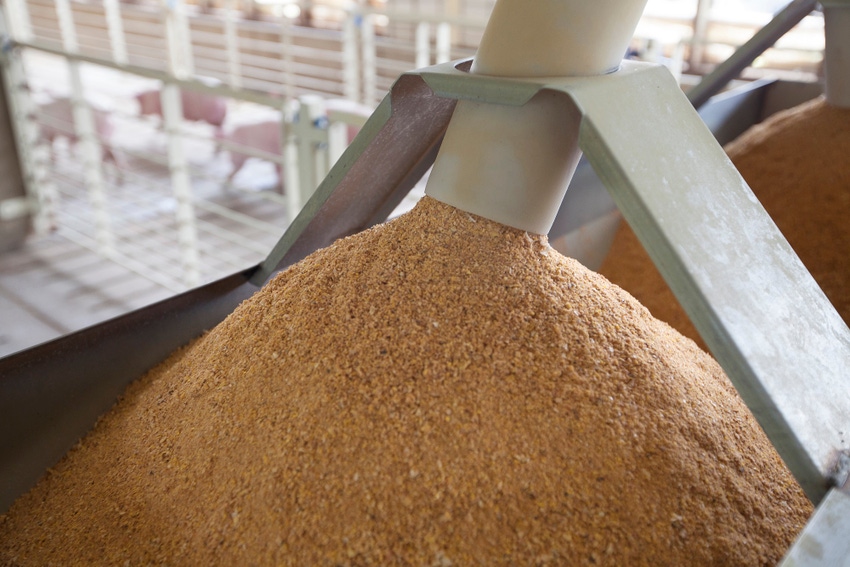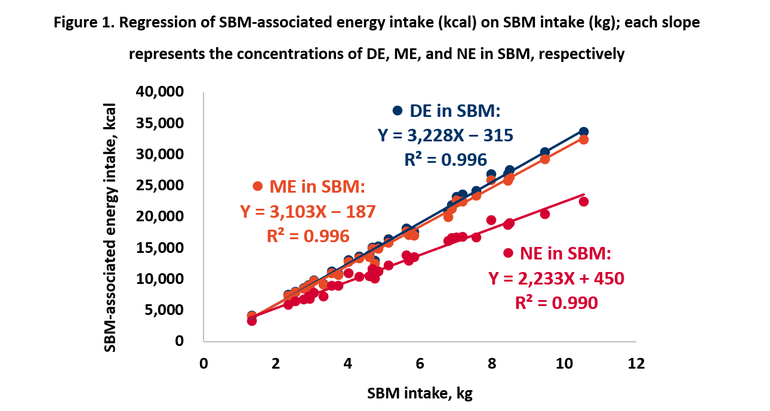Research determines net energy provided by soybean meal should be updated in formulation software.
March 23, 2021

Soybean meal is the major protein source in diets for swine throughout the world. However, in addition to providing amino acids to diets, soybean meal also provides energy to the diets. Diets are usually formulated based on the net energy in each individual ingredient using a linear programming computer software. Therefore, the net energy for each ingredient is important for the value the ingredient is assigned in the formulation. Results of recent research indicate that current soybean meal from the United States may provide more net energy than previously estimated. As a consequence, an experiment was conducted to test the hypothesis that the net energy in soybean meal from the United States fed to modern genotypes of pigs is greater than the value that is currently used in feed formulation.
The basal diet contained corn (gross energy = 3,824 kcal/kg) as a sole source of energy and contained no soybean meal. Five additional diets were formulated to contain corn and 15, 25, 35, 45, or 55% soybean meal (gross energy = 4,182 kcal/kg), respectively.
A total of 24 pigs (weight: 26.5 kg) were housed in groups of four pigs in six indirect calorimetric chambers and allotted to six diets using a 6 × 6 Latin square design with six diets and six periods. Each chamber was equipped with a slatted floor, stainless steel fecal screens, and urine pans for total, but separate, collection of fecal and urine materials. The temperature and humidity inside the chambers were controlled and maintained at the same levels in all chambers.
Pigs were allowed ad libitum intake of feed and had free access to water at all time. Feces and urine were collected for six days and total heat production was calculated using analyzed O2 consumption and CO2 and CH4 productions. Fasting heat production was also measured. Concentrations of digestible energy, metabolizable energy, and net energy in net energy were calculated by regressing soybean meal energy intake on daily intake of soybean meal.
Results indicated that the apparent total tract digestibility of dry matter and energy linearly decreased by addition of soybean meal to the diets. There were no linear or quadratic effects of adding SBM on total heat production, fasting heat production, heat increment, or digestible energy or metabolizable energy in diets. However, net energy in diets quadratically decreased by adding SBM in diets. Using regression analysis, the digestible, metabolizable, and net energy in soybean meal were 3,228, 3,103, and 2,233 kcal/kg, respectively (Fig. 1).
The calculated net energy in soybean meal is greater than book values and results of the experiment, therefore, confirm the hypothesis that current soybean meal from the United States provides more net energy to pigs than previously thought. The net energy provided by soybean meal should, therefore, be updated in formulation software used to formulate diets for pigs.

Source: Su A Lee, Diego Rodriguez, Hans Stein, University of Illinois, who are solely responsible for the information provided, and wholly owns the information. Informa Business Media and all its subsidiaries are not responsible for any of the content contained in this information asset.
You May Also Like



